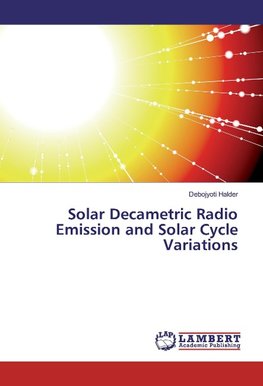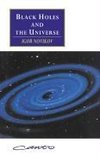
-
 Anglický jazyk
Anglický jazyk
Solar Decametric Radio Emission and Solar Cycle Variations
Autor: Debojyoti Halder
The Sun is one of the first objects studied by the early radio astronomers. In 2009, the Sun has been risen to peak in sunspot number and the related solar activity level. That means there should be a lot of solar flares on the Sun's surface and the Earth... Viac o knihe
Na objednávku, dodanie 2-4 týždne
60.12 €
bežná cena: 66.80 €
O knihe
The Sun is one of the first objects studied by the early radio astronomers. In 2009, the Sun has been risen to peak in sunspot number and the related solar activity level. That means there should be a lot of solar flares on the Sun's surface and the Earth should receive a number of geomagnetic storms as a result. So this is an exciting time to begin monitoring the Sun with radio receivers. Solar flares are powered by the sudden release of magnetic energy stored in the corona. The same energy release may produce coronal mass ejections (CME), although the relation between CMEs and solar flares is still not well established. Direct radio emission at decametric wavelengths may disturb the operation of radars and other devices that use those frequencies. The frequency of occurrence of solar flares varies from several per day when the Sun is particularly active to less than one every week when the Sun is quiet, following the 11-year cycle called the solar cycle. When there is a solar flare on the Sun's surface, there is often an accompanying burst of radio energy projected into space. We can monitor these bursts with standard VHF receivers with modest antennas.
- Vydavateľstvo: LAP LAMBERT Academic Publishing
- Rok vydania: 2017
- Formát: Paperback
- Rozmer: 220 x 150 mm
- Jazyk: Anglický jazyk
- ISBN: 9783330023192












 Nemecký jazyk
Nemecký jazyk 